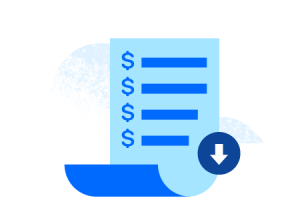When buying a home in Florida, you are likely aware of the associated closing costs. But how much is the average closing cost in Florida? These miscellaneous expenses are comprised of the various fees and services related to the real estate transaction, homeowners insurance, title search fees, appraisals, attorney’s fees, prepaid interest points, and more. https://cirifl.com/parkland-fl-closing-costs/ So, how much are closing costs in Florida? Let’s take a look.
Closing Costs In Florida Vary Depending on the Situation
Closing costs can vary widely depending on the type of property being purchased, the prevailing market conditions, and the size of the loan. Generally speaking, buyers should set aside between 2% and 5% of the purchase price when estimating these costs. On a $200,000 loan, that would be $4,000 to $10,000. However, keep in mind that these figures are just estimates and actual amounts may be significantly lower or higher.

Breaking Down Your Closing Costs
The bulk of the closing costs, typically 1%, will be due to the lender. This fee, known as the origination fees, covers the lender’s administrative costs. Another common closing cost is the pre-paid items. This includes any taxes, interest, homeowners insurance, private mortgage insurance, or any other charges levied by the contractor or lender that must be paid in advance. Lastly, another 1% can be attributed to the title company and its services, such as the title search, title insurance, and escrow service.
Understanding Additional Fees Associated With Closing Costs
In addition to these basic closing costs, there are other fees that may be included. These can include anything from transfer taxes, surveyor fees, recording fees, and pest inspection fees. It is important to ask your realtor or lender if they anticipate any additional fees based on the location and type of purchase. As with the basic closing costs, the amount of these additional fees can vary and should be taken into account when making your final calculations.
The Benefits of Closing Costs
Though closing costs can be expensive, they do provide certain benefits to homebuyers. For one thing, lenders are able to assess the risks associated with a particular loan and adjust their rates accordingly. Also, the closing costs prepay some of the purchases associated with the purchase, such as unemployment insurance and property taxes, which can be beneficial for some buyers. Finally, closing costs enable buyers to protect the equity in their home over time by paying off the loan faster.
Preparation is Key When Dealing With Closing Costs
It is important for prospective buyers to understand the different types of closing costs and prepare accordingly. This way, they can anticipate what costs may be associated with the purchase and make sure they will have enough money saved to cover them. Additionally, it is important to be aware of any local or state regulations that may affect closing costs and factor those into the calculation.
Helpful Resources for Prospective Homebuyers in Florida
The best way to make sure you get the most out of your closing costs is to thoroughly research the issue and understand all of the associated fees. There are a number of online resources available to help educate buyers about the process. The Florida Association of Realtors also provides comprehensive information about the closing process, as well as listing services, financial calculators, and other helpful tools. Gathering information upfront will ensure that when it comes time to sign on the dotted line, you will know exactly what to expect.
Make Sure You Are Prepared for Closing Costs Before Purchasing a Home in Florida
Ultimately, understanding closing costs in Florida can help homebuyers feel more prepared and confident when it comes time to close. Knowing the typical costs associated with a particular property and researching the applicable laws can help buyers make sure they enter into an informed transaction. Taking the time to plan ahead can save you a lot of stress and hassle down the road.
